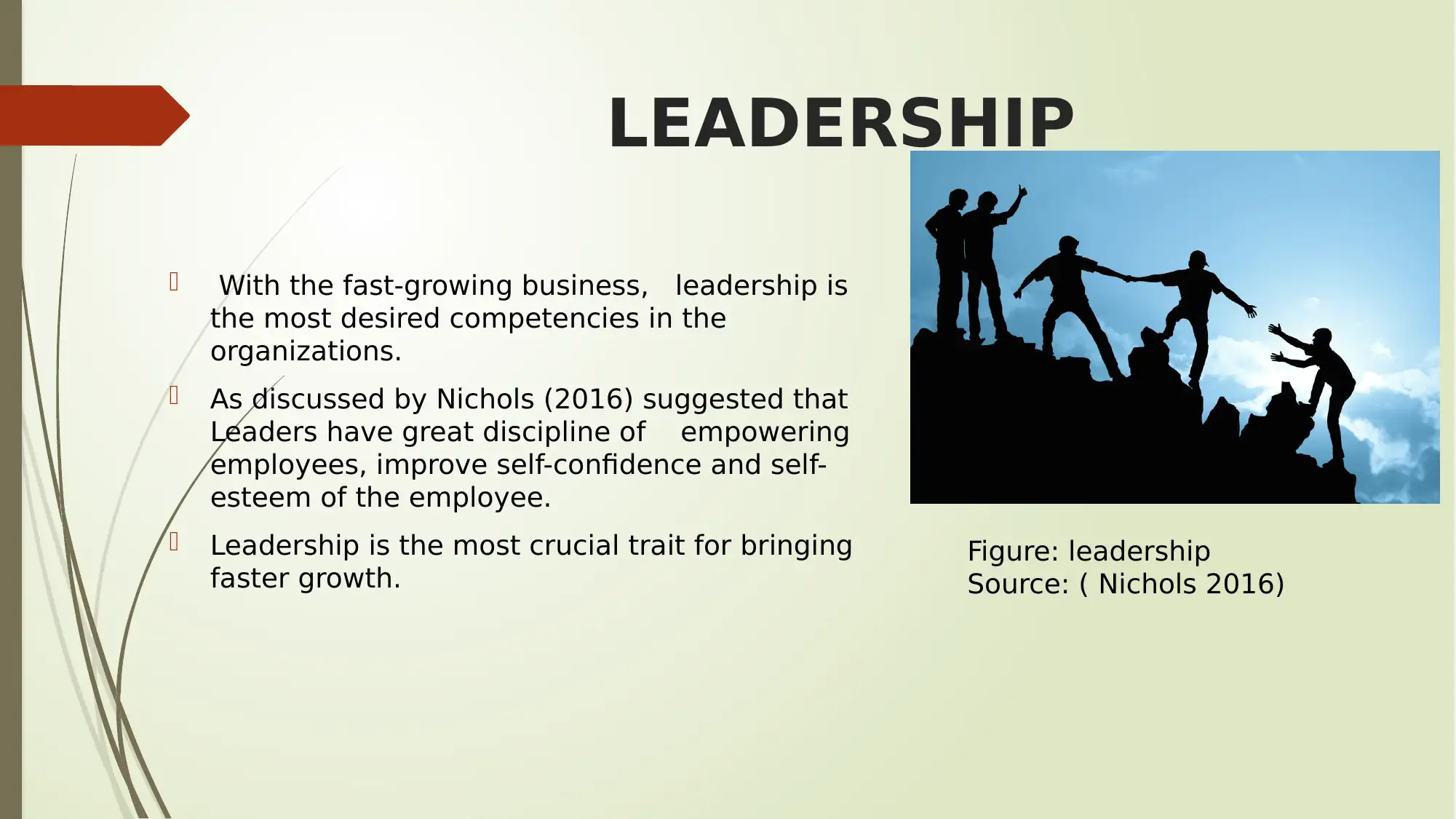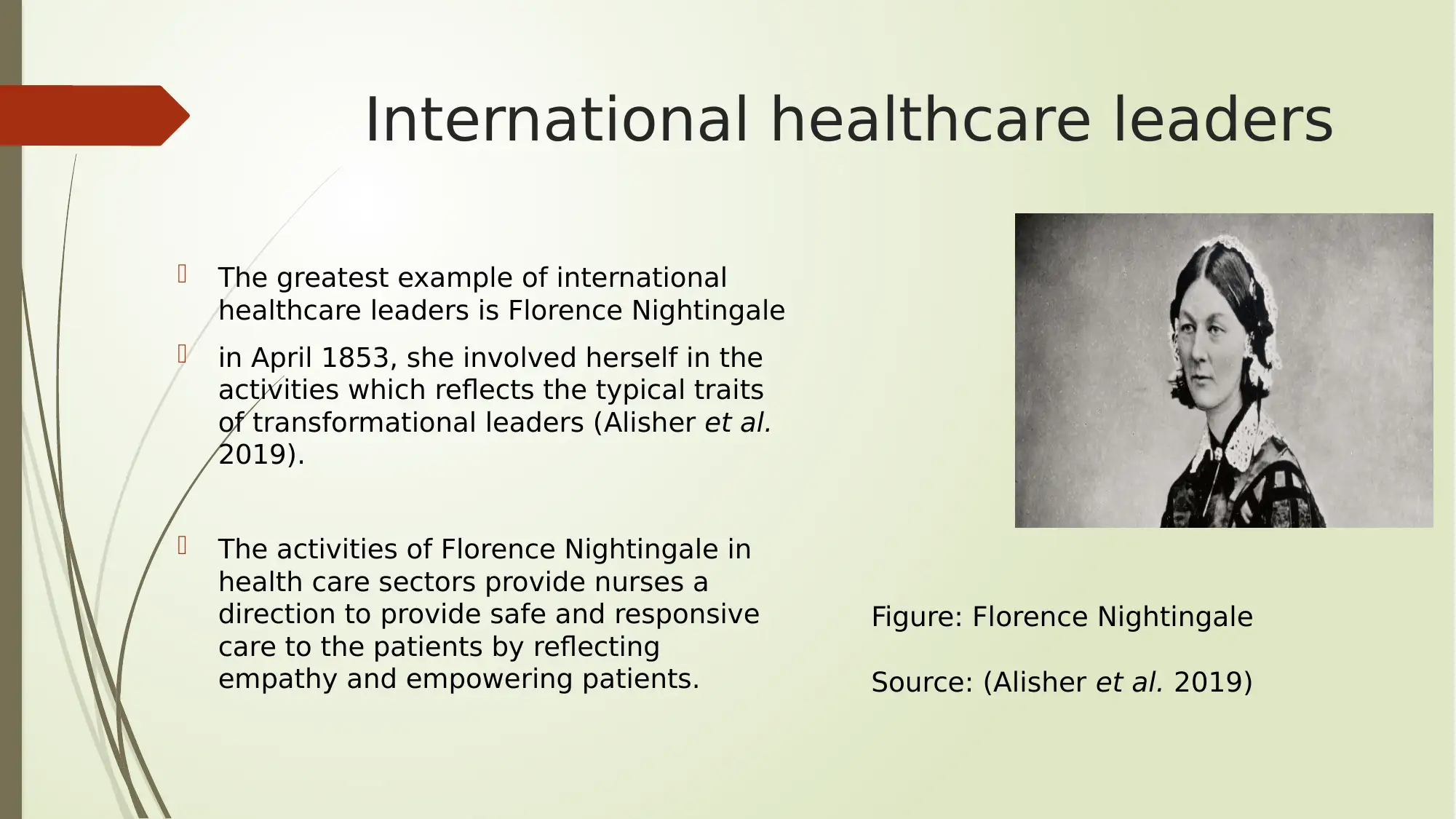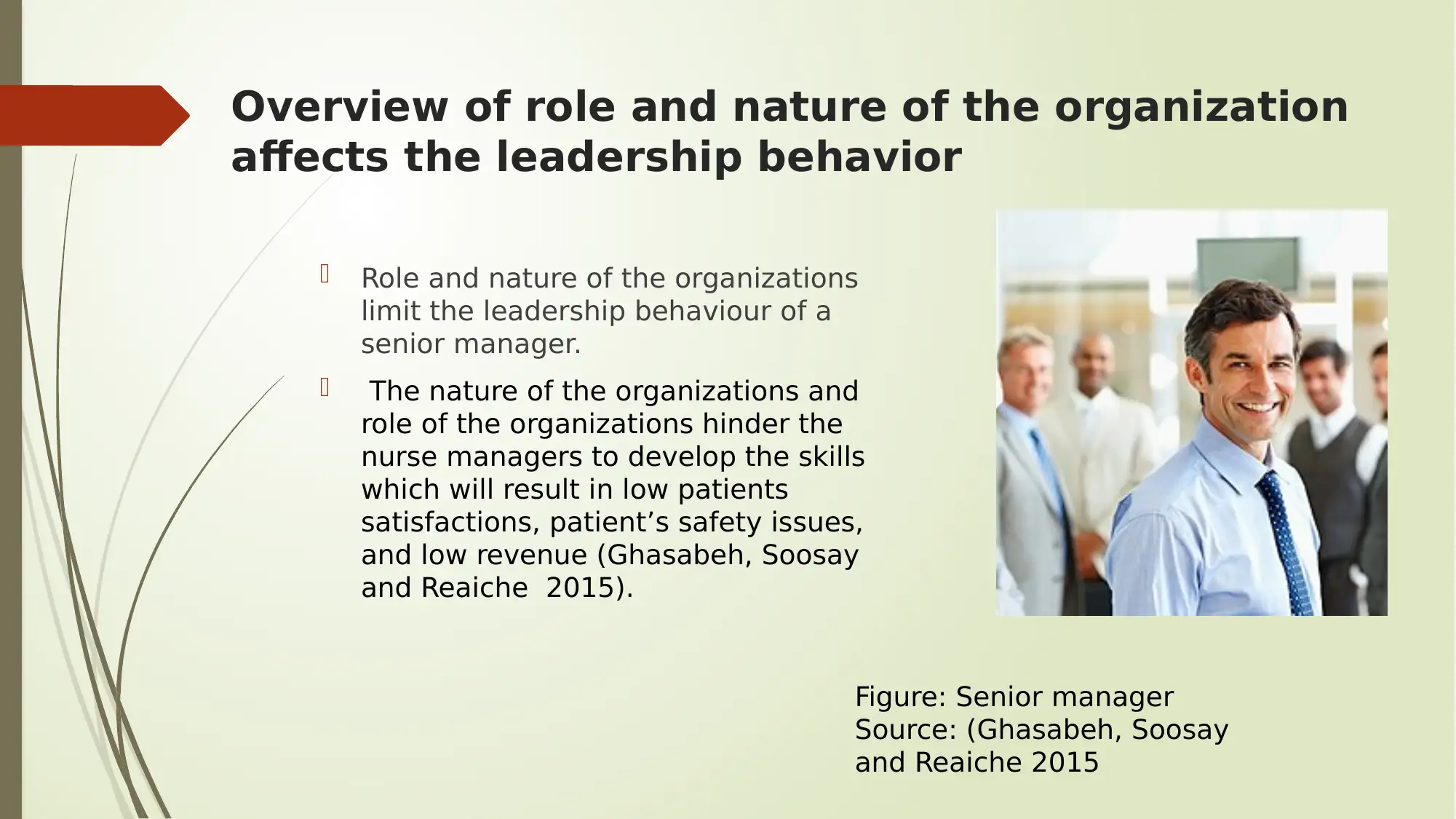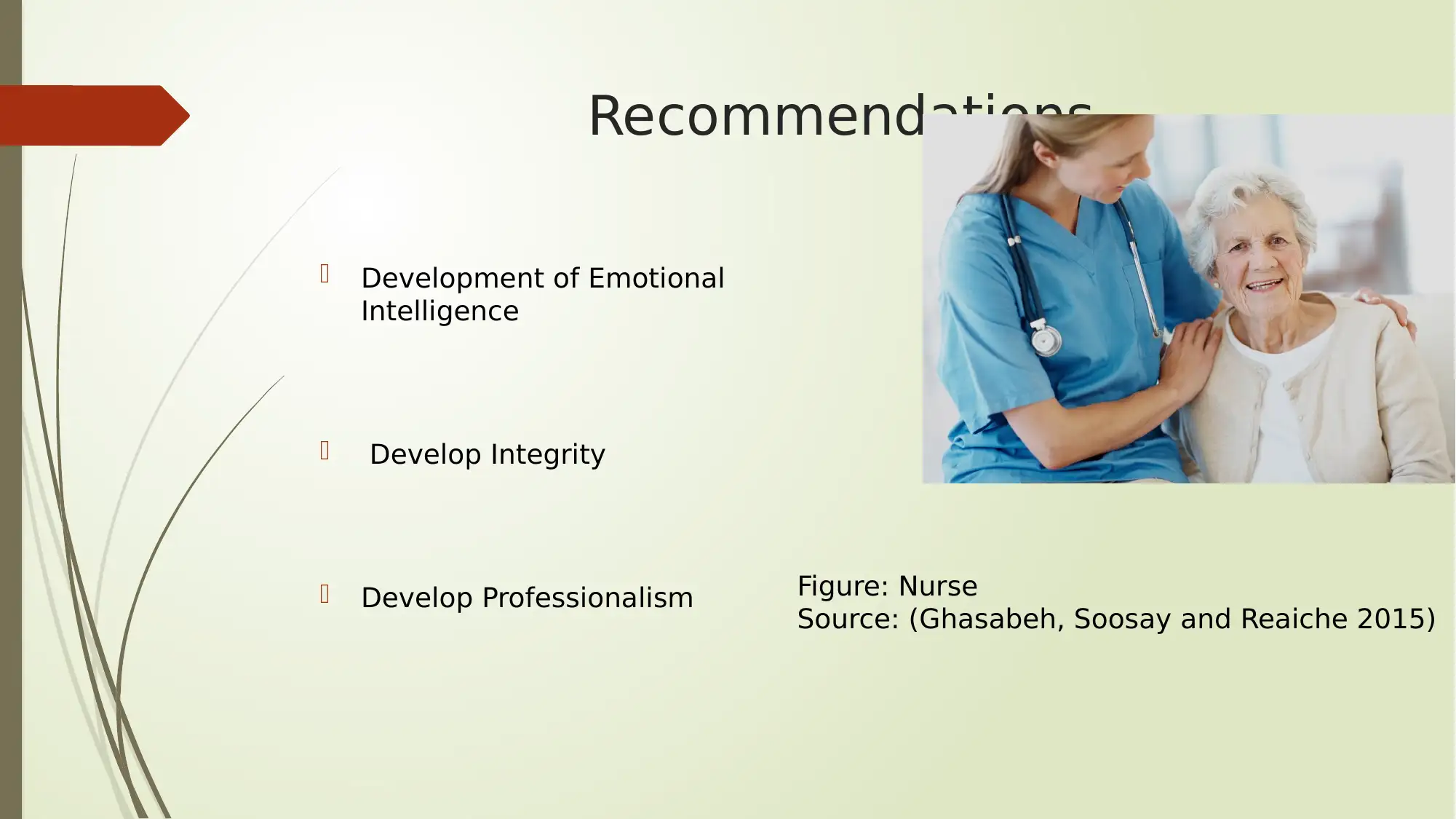Leadership in Nursing: Role of Organizations and Recommendations
VerifiedAdded on 2023/01/16
|13
|995
|87
Report
AI Summary
This report provides a comprehensive overview of leadership in nursing, emphasizing its significance in delivering high-quality patient-centered care. It delves into the core competencies of leadership, highlighting the importance of empowering employees, building self-confidence, and fostering organizational growth. The report explores various leadership theories, particularly transformational leadership, and its application in nursing practice, referencing the contributions of Florence Nightingale as a prime example of an international healthcare leader. It analyzes how the nature and role of organizations influence leadership knowledge, skills, and behaviors, and how these factors impact patient satisfaction and safety. The report concludes with practical recommendations for nurses to develop effective leadership skills, including adhering to policies, developing emotional intelligence, and cultivating professionalism. It underscores the critical role of leadership in shaping the skills, knowledge, and behavior of leaders, which ultimately reflects on the growth of the organization and the quality of patient care. The report incorporates relevant figures and references to support its findings.
1 out of 13


















![[object Object]](/_next/static/media/star-bottom.7253800d.svg)